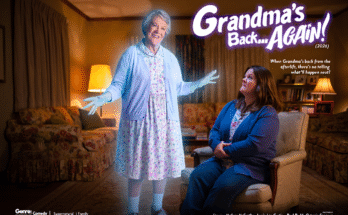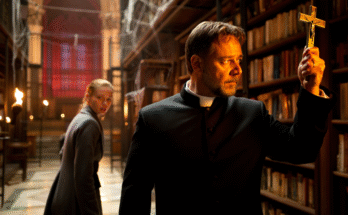The Rambo saga has always been more than bullets and body counts; it’s been about a man haunted by war, by abandonment, by the truth that survival often comes at the cost of peace. With Rambo 6: New Blood, Sylvester Stallone laces up his boots once more, stepping into John Rambo’s scarred skin for what feels like the most definitive passing of the torch. The film doesn’t merely pit him against faceless enemies — it dares to confront the end of a legacy.

This time, the battlefield shifts to the lush yet treacherous jungles of Thailand, where Rambo discovers a cartel with a nightmarish trade: harvesting Vietnam veterans for black-market organs. It’s grotesque, timely, and brutally on-brand for a series that thrives on exposing human cruelty. The stakes cut deeper because these aren’t just faceless victims — they’re echoes of Rambo’s own past, brothers-in-arms sacrificed to a machine of exploitation.
Enter Noah Centineo, the “new blood” of the title, whose character begins as a green recruit barely grasping the violence he’s about to inherit. Stallone plays mentor and reluctant father figure, sharpening the young man with the same steel he once used to carve himself out of Vietnam’s hell. Their dynamic is uneven, sometimes charged with tough love, sometimes cracking open into brief moments of genuine vulnerability. Stallone’s eyes, weathered yet fierce, do as much heavy lifting as any monologue.

Louis Mandylor stands out as the cartel kingpin, a sadistic foil who thrives on theatrics but never slips into cartoonish excess. His brand of cruelty is surgical, precise, and dripping with malice — a reminder that Rambo’s enemies have evolved, even if his methods haven’t. Mandylor ensures the conflict feels personal, an echo of the larger war inside Rambo himself.
The action sequences are staged with an almost mythic brutality. Bullet-riddled raids give way to hand-forged traps, machete melees, and jungle warfare stripped to its primal core. Stallone may move slower now, but his every step carries weight — a warrior who no longer fights to prove his strength, but to impart one last lesson. Centineo’s fresher energy contrasts sharply, injecting urgency and recklessness that keeps the film from feeling like an elegy alone.
Yet it’s in the quieter moments that the film cuts deepest. PTSD flashbacks slice through the carnage, pulling Rambo back into the Vietnam jungles that never truly released him. The past bleeds into the present, every raid and explosion underscored by ghosts. This duality — of training a successor while reliving his own scars — makes New Blood a rare installment that tries to wrestle with Rambo’s mortality rather than mythologize it endlessly.

Tyler’s score amplifies the chaos with an almost tribal war cry, pulsing between mournful strings and pounding percussion. The soundscape feels like both a requiem and a call to arms, echoing the film’s central tension: the desire for closure against the inevitability of violence. It’s not subtle, but then again, Rambo never has been.
Still, the film stumbles under the weight of its “torch-passing” tropes. The mentor-protégé arc veers toward predictability, at times threatening to reduce Rambo’s swan song into formula. While Centineo is compelling, his journey occasionally feels rushed, as though the film is more interested in setting him up than letting Stallone’s Rambo breathe through his final outing.
As a whole, Rambo 6: New Blood doesn’t rewrite the franchise’s DNA, but it does carve a raw, bloody punctuation mark. The balance between tribute and reinvention isn’t perfect, yet there’s undeniable satisfaction in seeing Stallone rage against the dying of the light. His Rambo limps, bleeds, and finally — perhaps — begins to let go.

The overall effect is bittersweet. Fans hungry for carnage will find it in spades, but beneath the explosions lies a meditation on legacy, mortality, and the uneasy truth that even the fiercest warriors can’t fight time. It’s a closing chapter written in blood, sweat, and memory.
In the end, New Blood earns its place with a 7.3/10 — a flawed yet powerful sendoff. The torch may wobble as it’s handed over, but Stallone ensures it burns bright enough to leave scorch marks on cinema’s landscape. Whether Centineo can carry it forward remains uncertain, but for one last time, Rambo survives — and survives loudly.


